Disability has proven to show volatile loss ratios for group insurers in recent years.
While socioeconomic forces play a role, overuse of certain pricing approaches can also contribute. We liken this phenomenon to "fudging", or the practice of taking mental shortcuts to adjust pricing assumptions. The result seems sweet, but can carry a bitter cost.
To understand why actuaries fudge, only consider today’s high-stakes, high-pressure business environment. Far too often, individuals selectively credit evidence that confirms a desired conclusion, while discrediting evidence that does not – an often unconscious decision-making process called motivated reasoning.
One doesn’t need to look far for examples: consider ardent sports fans from two opposing teams. Despite watching the same game, both sides believe that the umpire is biased. How many times have you kindly offered the umpire your glasses? Perhaps some decisions truly are unbelievable.
As noted earlier, when it comes to the group insurance market, misleading – or fudged – pricing decisions can deliver bitter results.
Here are nine decidedly unsweet pricing fallacies to avoid:
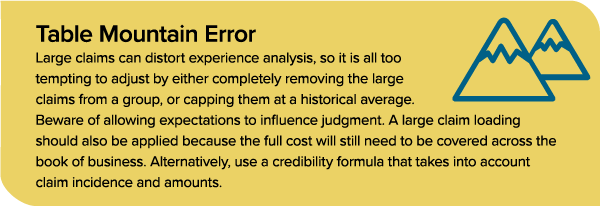
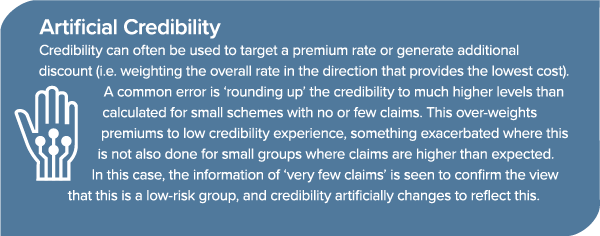


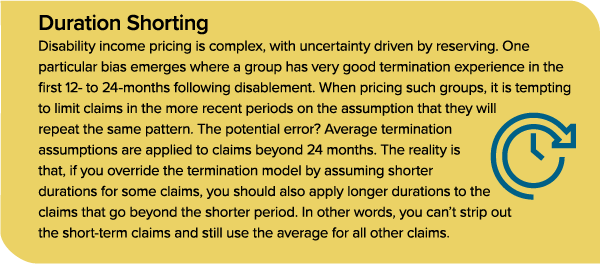
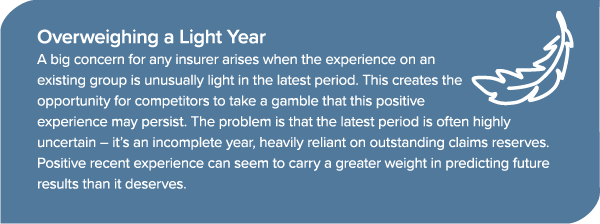

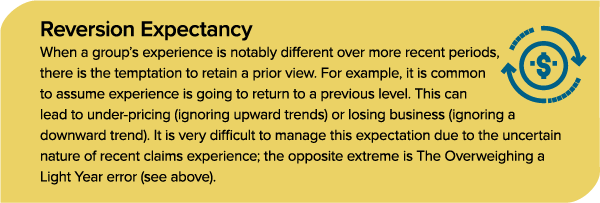

All nine fallacies present alluring temptations, and discipline is key. While the pressure to remain competitive is a reality, the industry should guard against unconscious bias and motivated reasoning when pricing group business.
Contact RGA South Africa to learn more about group risk pricing.












